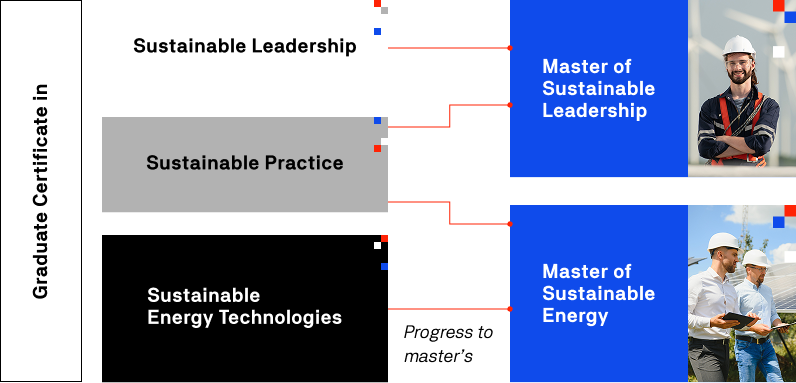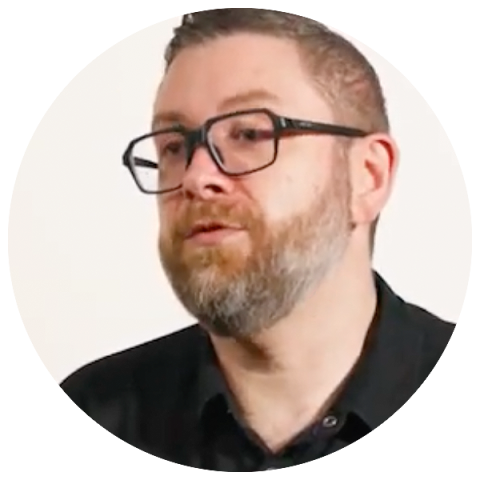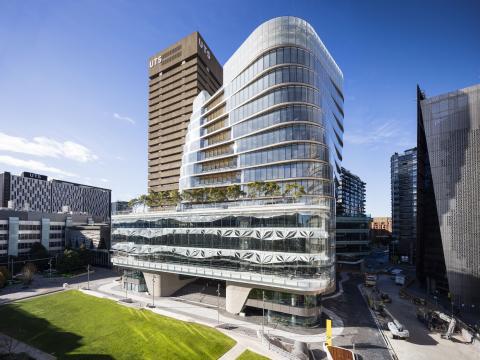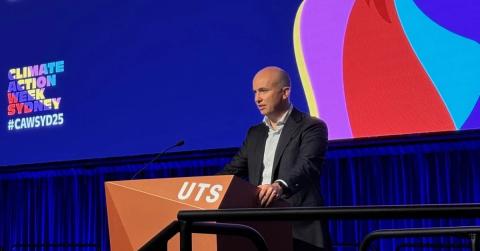Explore our range of 100% online courses in Sustainability
UTS Online offers a range of sustainability courses to equip professionals with the knowledge and skills to lead in a rapidly changing world. Whether you’re advancing your expertise in sustainable leadership or sustainable energy, our courses help you drive meaningful impact and build a better future.
Develop the practical knowledge, strategic thinking and leadership capabilities needed to make a lasting difference — on your terms, at your pace.
Sustainability
Why study Sustainability courses with UTS Online?
Top 20 university globally for advancing sustainable development1
Become a catalyst for change and pave the way for a more sustainable future
Broaden your employability with universally essential transferable skills
A pathway to a fulfilling career in energy innovation, where sustainability is paramount
1Times Higher Education Impact Ranking


A leader in sustainability education
UTS is globally recognised for its strong commitment to sustainability and is ranked among Australia's top universities for delivering future-focused, impact-driven education.
Industry-informed, future-ready learning
Our courses are developed with industry experts to provide relevant, applied skills that prepare you to tackle current and emerging sustainability challenges..
Specialisations to shape your impact
Focus your studies on sustainable leadership or sustainable energy, developing specialised expertise that aligns with your goals and drives meaningful change.
Explore our Sustainability study pathways
Pathway options are available for students who complete a graduate certificate course and wish to progress to the master’s course. These pathways provide flexibility and allow students to tailor their learning experience to their individual needs and interests.
FAQ's about Sustainability courses at UTS Online
Sustainability refers to meeting current needs without compromising the ability of future generations to meet theirs. It involves responsible management of resources, environmental protection, and social equity.
Studying sustainability equips you with the knowledge to address global challenges like climate change and resource depletion. Professionals in this field are increasingly sought after to develop and implement sustainable practices across various industries.
Yes, sustainability is a rapidly expanding field across industries such as energy, construction, finance, and policy. Professionals who can develop and implement sustainable practices are increasingly sought after to address global challenges like climate change and resource depletion.
Key skills for a career in sustainability include systems thinking, data analysis, effective communication, and leadership. UTS Online's courses are designed to cultivate these competencies, preparing graduates to drive meaningful change in various sectors.
Yes! Australia’s clean energy and ESG sectors are booming. Jobs in sustainability have grown by over 38% in the past five years, with roles in environmental consultancy, policy, and corporate responsibility now in high demand.
Source: LinkedIn Jobs on the Rise Report, 2024
Pretty much all of them. From construction and finance to government and agriculture, industries are under pressure to meet ESG targets and transition to more sustainable practices, making sustainability expertise a must-have.







